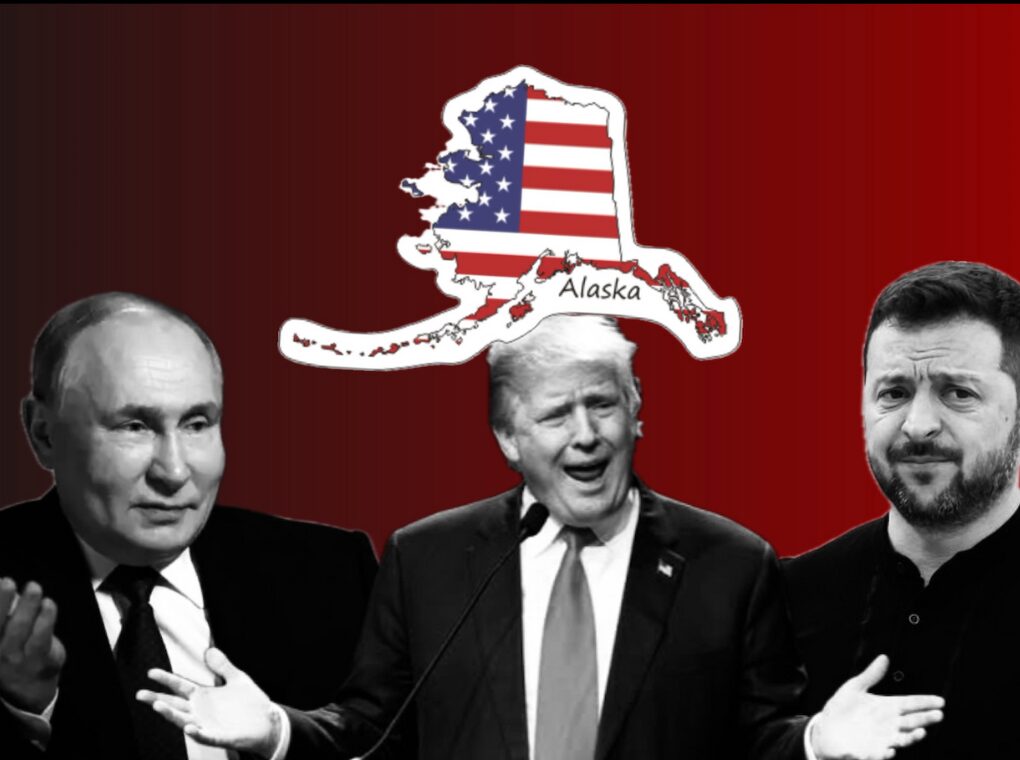As U.S. President Donald Trump prepares for his high-profile summit with Russian President Vladimir Putin in Alaska, his recent remarks about attempting to “get back territory for Ukraine” have injected new urgency and controversy into the ongoing Ukraine war diplomacy.
Trump’s Pledge and the Alaska Summit
Trump publicly stated he would “try to get some territory back for Ukraine” when he meets with Putin, citing Russia’s occupation of “prime territory” since the start of its full-scale invasion in February 2022. He has cast his forthcoming summit as a “feel-out meeting” to assess Putin’s willingness to negotiate, claiming he would know “probably in the first two minutes” if real progress toward peace is possible.
Land Swapping: The Core of the Controversy
A recurring element in Trump’s rhetoric is the idea of “land swapping”—the notion that both Kyiv and Moscow may need to cede territory as part of any peace settlement. Trump has signaled openness to territorial concessions, saying there will “be some land swapping going on,” and that “some of that territory” Russia occupies could be returned to Ukraine, though he has not offered details on which specific areas or the mechanics.
Reportedly, Putin’s previous proposals have included asking for Ukraine to cede the entirety of Donetsk, Luhansk, and Crimea, while potentially freezing battle lines in Kherson and Zaporizhzhia regions. Trump, viewing these as starting points, has implied he will press for terms more favorable to Ukraine, but expectations for substantive Russian withdrawal remain low.
It is not the first time that Trump has used the phrase “land-swapping”, though it is unclear what land Russia could cede to Ukraine. Kyiv has never laid claim to any Russian territories. Trump said he will update European leaders if Putin proposes a “fair deal” during the talks, adding that he would speak to Ukraine’s President Volodymyr Zelensky first “out of respect”.
He said, “I’ll call him first… I’ll call him after, and I may say, ‘lots of luck, keep fighting,’ or I may say, ‘we can make a deal”. Trump also stated that while he and Zelensky “get along”, he “very severely disagrees with what [the Ukrainian president] has done”. Trump has previously blamed Zelensky for the war in Ukraine, which was sparked by Russia’s full-scale invasion of the country in February 2022. He further added that a future meeting could include Zelensky and could be a three-way session including himself and Putin.
Kyiv’s Role – And Its Exclusion
Notably, Ukrainian President Volodymyr Zelenskyy was not invited to the Alaska summit, prompting worries among Kyiv and its European allies that U.S.-brokered terms may be dictated without direct Ukrainian participation. Trump said he would brief Zelenskyy after meeting Putin, but has been dismissive about Zelenskyy’s role in previous negotiations.
Ukrainian leaders remain adamant: any settlement requiring Ukraine to cede territory is unacceptable. Zelenskyy’s chief of staff has reiterated that an “unconditional ceasefire” must precede any substantive talks, and that lasting peace cannot be based on rewarding aggression.
Reactions from Europe and the International Community
European leaders and NATO have expressed concerns that Trump’s readiness to negotiate over Ukraine’s territory may force Kyiv into an unfavorable peace, potentially setting a dangerous precedent for future Russian actions in Europe. EU foreign policy chief Kaja Kallas emphasized the need for “transatlantic unity, support for Ukraine, and pressure on Russia” to end the war, not imposed concessions.
There are also worries within Ukraine and among allies that quick U.S. “peace-brokering” could undermine broader Western sanctions and commitments.
Analytical Perspective
Trump’s Diplomacy Style: Trump’s approach is heavily transactional, emphasizing personal diplomacy and rapid deal-making. His willingness to discuss territorial “swaps” may reflect a desire for a quick win, but runs the risk of legitimizing Russian gains in Ukraine if Kyiv’s interests are subordinated.
Strategic Stakes: The outcome of the Alaska talks could set the tone for future European security. A deal that recognizes Russian-occupied areas as legitimate could embolden Moscow and undercut the principle of territorial integrity.
Domestic and Global Political Impact: Trump’s position may play well with constituents eager for an end to the conflict, but could alienate traditional U.S. allies and raise doubts about America’s commitment to European security.
Also Read: Russia warns of ‘Titanic Efforts’ to Disrupt Putin-Trump Talks in Alaska
Trump’s declaration that he will “try to get back territory for Ukraine” at talks with Putin marks a bold and risky diplomatic gambit. The path forward is fraught: while pushing for peace is an urgent priority, the means—especially if they involve trading Ukrainian land—are fraught with moral, political, and strategic perils for the future of Ukraine and the wider international order.
